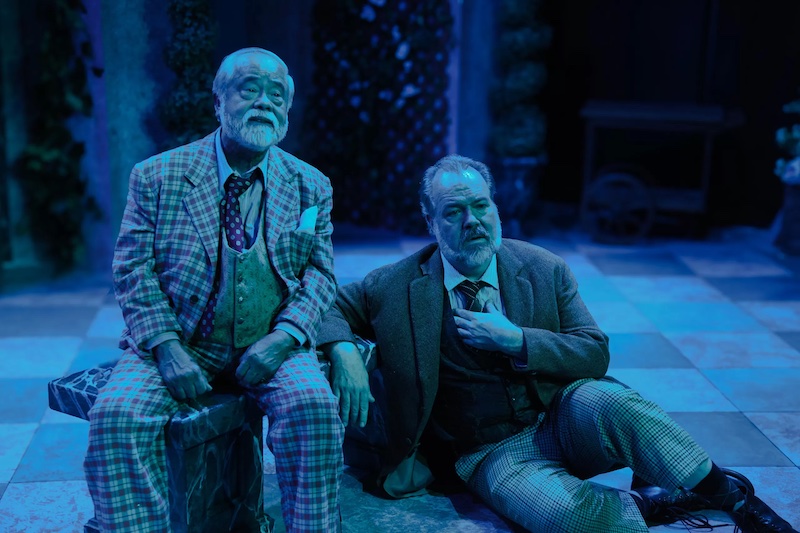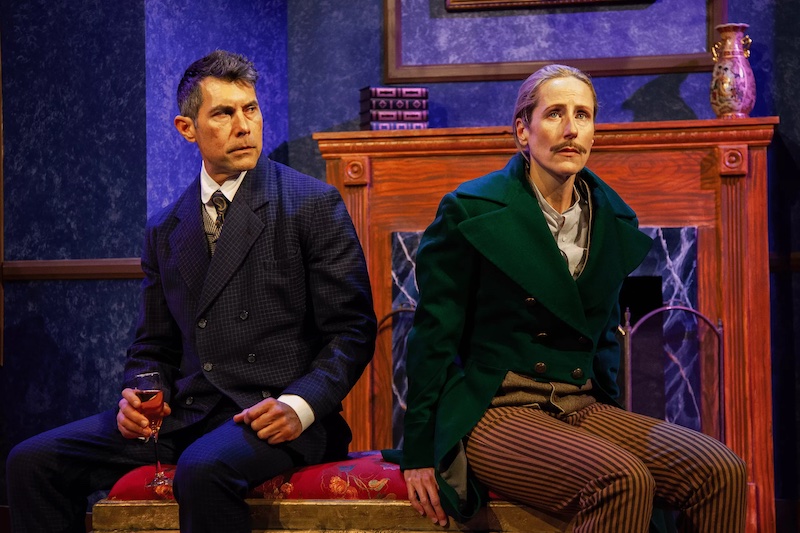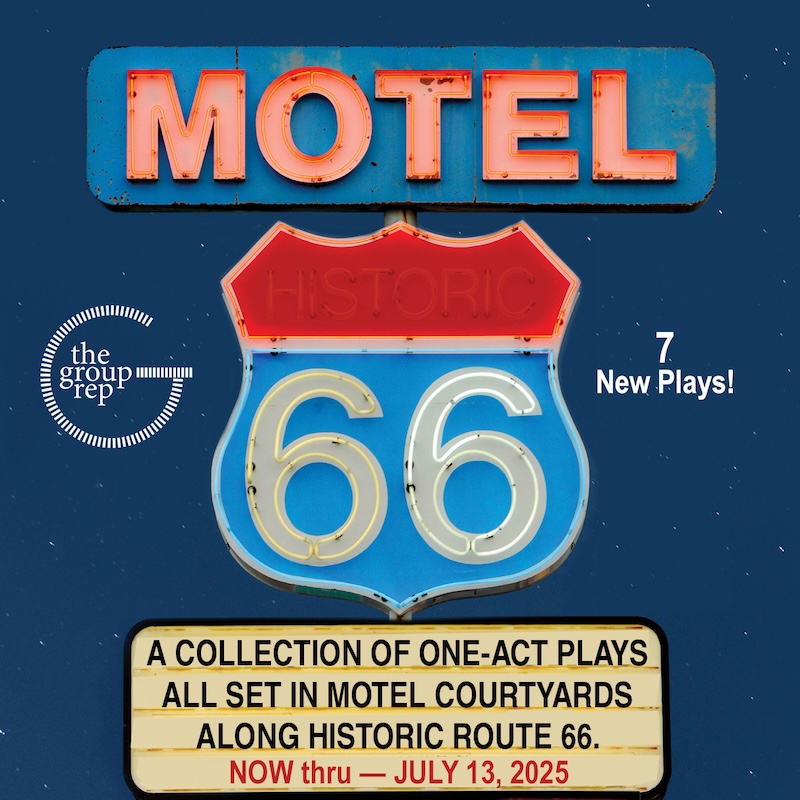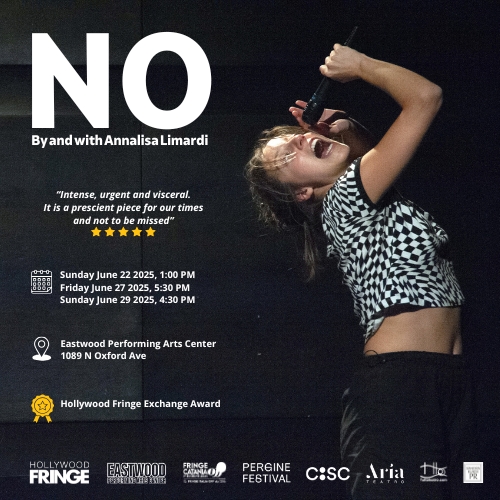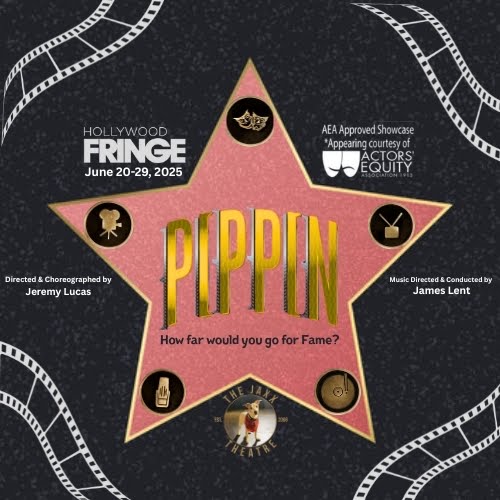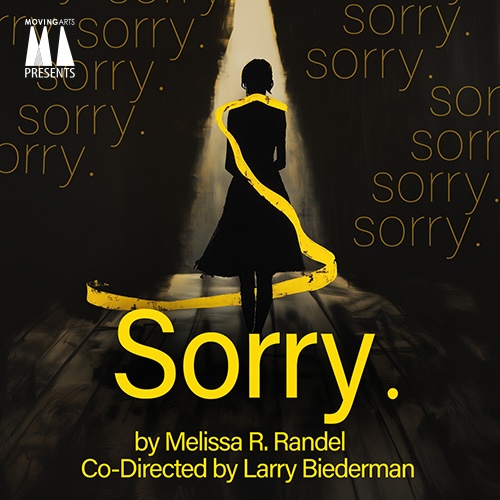John Allee (Photo by Geoffrey Wade)
Love’s High Stakes Among Older People
Director Armin Shimerman’s novel take on Shakespeare’s gender-fluid “Twelfth Night,” for Antaeus Theatre
By V Cate
RECOMMENDED
If only we still celebrated Twelfth Night as they did in Elizabethan England. On the twelfth day following Christmas, on the eve of the Epiphany, festivities abounded through revelry, mischief, and playful rebellion against social order. It is highly possible that the original production of Twelfth Night, or What You Will was performed for Queen Elizabeth’s pre-Epiphany celebrations in 1601. Regardless, William Shakespeare’s romantic comedy embodies the topsy-turvy themes of the holiday: social status is upended, revelry abounds, identities shift, and taboo passions blaze.
The play’s premise in a nutshell: following a catastrophe at sea, Viola (Liza Seneca) believes her twin brother to have died. Using the alias “Cesario,” she impersonates a man and enters the employment of Duke Orsino (David DeSantos). Complications arise when she falls for her employer just as he tasks her with wooing the Countess Olivia (played by the stellar Veralyn Jones) on his behalf. Supporting characters orbit the two houses, until compounding deceptions result in violence, imprisonment, sex, and love.
Shakespearean scholar and veteran Antaeus member Armin Shimerman helms a production that is both sincere and raucous. Through his direction, the Bard’s words take center stage. Clarity of language, emotional vulnerability, and a tight tempo make for a 17th century play that is palatable for modern audiences.
Several sharp creative decisions make this a unique Twelfth Night worth viewing. First, deliberately choosing to cast older actors creates a more grounded plot, free of the frivolity of youth and tapping instead into the oft-repressed lunacy that makes us human. “In this production,” explains Shimerman, “I purposefully cast the roles older than they are normally played because I firmly believe there’s a glorious melancholy to older people facing their last chance at finding Love.” Indeed, love is not only for the young — and as the years pass, the stakes grow ever higher. Loneliness and sorrow can turn the best of us into lunatics.
And then there is the queerness so inherent in the world of Illyria. Love is love, sex is sex, gender is whatever gender is, and people are, well, complicated.
Thumb through William Shakespeare’s collected works, and you may notice his literary obsession with identity in general, drag in particular. Cross-dressing as a theatrical trope appears throughout his oeuvre (see: As You Like It, Merchant of Venice, Cymbeline, Two Gentlemen of Verona, The Taming of the Shrew). But were Shakespeare’s cross-dressing characters written as an easy laugh, or something more progressive — possibly a sometimes-vehicle for female characters to experience the world with a freedom of expression that a masculine station affords them? The frequency of the trope in his writings – and the sustained popularity of his works – suggest that perhaps it was, and remains, both.
It is important to differentiate between someone who dresses up as a person of a gender other than their own, and someone who identifies as with a gender that differs from the one assigned to them at birth. One could argue that Viola is nonbinary or transgender, or at least could be considered such in modern times. The play, written on the cusp of the 1600s, does not necessarily support this notion, but then again, the concept of gender was different in England at that time. And perhaps we can regard a eunuch — as Viola pretends to be — as a third gender of the time, not quite man, not quite woman. Even in Shakespeare’s time, the issue of gender doesn’t seem to have been binary. Regardless, Viola dons drag as both a means of personal protection and, in wearing her lost brother’s clothes or similar garb, as an embodiment of his essence — a source of comfort after his presumed death. At least in the clothes she inhabits she can be close to him.
The larger point may be that gender, outside of societal expectations, is irrelevant in matters of lust and romance. Love and desire can transcend gender. As struggle with our own human complexities, so do we also strive to be comfortable with ambiguity.
Twelfth Night is not singular in its tale of hot twins who are separated, after which romance and hilarity ensue. The Comedy of Errors makes similar use of mistaken identity. On the page (and presumably when originally staged), this is a delightful and ripe premise. In modern practice, each director must personally decide how to approach it.
But this much is crucial: because the actions and opinions of the characters surrounding Viola are only justified by their complete and unwavering conviction that Viola and Sebastian are the same person, a certain level of buy-in is required.
In this particular production, the manner, voice, and look of the “twins” are so wildly different (apart from wearing the same clothes, like a cartoon character would – fine) that the suspension of disbelief required calls the other design choices into question. If the production cannot take the central theme of the two characters’ similarity seriously, what should the audience take seriously? Luckily, high-caliber performances compensate for this oversight.
There are quite a few exceptional ones. Jones delivers a powerful yet pitiable Olivia, simultaneously regal and vulnerable. Alberto Isaac marries sincerity with absurdity in a charming performance as the drunkard, Andrew Aguecheek. Kitty Swink presents a deliciously self-assured handmaid Maria. And Luis Kelly-Duarte portrays a strong, grounded, sympathetic, and unapologetically romantic Antonio. Each one of these performances make for a unique interpretation of a classic character.
Two other portrayals are standouts, beginning with Joel Swetow as Malvolio. The uptight servant-turned-fool longs to rise above his station and partner with Olivia. But those around him make sport of his suffering, and what starts as a joke quickly gets out of hand. Under Shimerman’s direction, Swetow creates a unique take on a classic character — and the climax of his ambitions prompts us to pause to consider the cruelty of class dynamics.
The other outstanding turn is delivered by John Allee (who also served as composer and music director) as Feste, the “Fool.” The “Fool” archetype lives outside of social hierarchy and mortal binaries, and possesses a wisdom and sanity that eludes the other characters. Apart from his performance, Allee’s musical work elevates the entire production. Music is as essential to theatre as it is to celebration. Rarely is the scoring of Shakespeare’s music done so well.
Other production values are detailed and vibrant. Christopher Scott Murillo’s scenic design is evocative and gracefully functional, defining separate spaces while allowing actors to move unencumbered between locations. Together with Kate Bergh’s handsome early 1900s costumes, the world feels visually cohesive.
Indeed, notwithstanding the disparate appearance of the twins, the production offers a fresh and thoughtful interpretation, proving that Twelfth Night is not just a play about mistaken identity but an exploration of the complexities of the human heart. And Shimerman’s adjustments to the play’s ending – often seen as overly neat or contrived – do more than merely brush aside the more difficult themes in favor of a happy ending. His staging may not be bombastic, but it’s unique take on this iconic classic is undeniable.
Antaeus Theatre Company, 110 E Broadway, Glendale. Check website for schedule; thru March 17. antaeus.org Running time: two and a half hours with one 10-minute intermission



